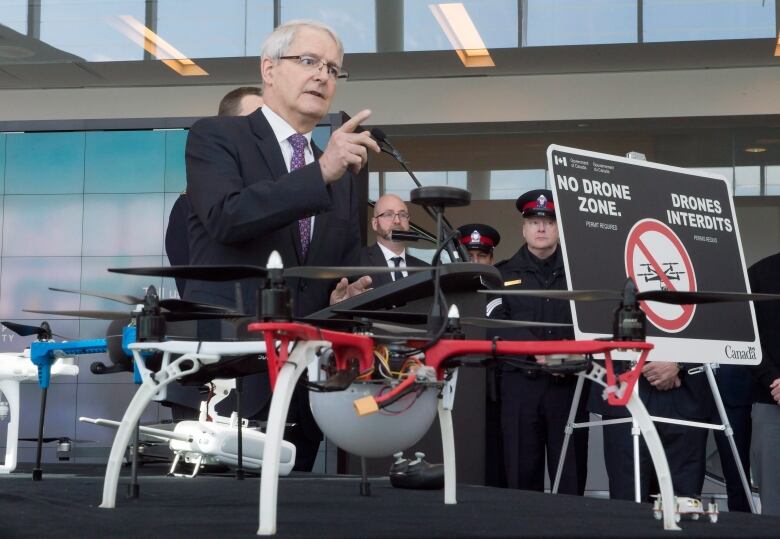B.C. drone schools expect surge in enrolment with proposed law changes
New rules on permits, insurance could come into effect later in 2018, according to Transport Canada

Drone schools in B.C. are expecting to see an increase in enrolment as the federal government prepares to unveil new laws governing drone flights later this year.
Drones are a hot market in the province, where everyone from realtors to wedding video companies are looking for people to capture picturesque, sweeping aerial shots.
Paul Bennett with Aerobotika, a drone education company based in Metro Vancouver, said this has kept his schedule busy.
"Our numbers have actually increased," he said. "More than doubled, if not tripled this year over last year, even though the new regulations aren't in place."
According to Transport Canada, the proposed rules will divide drone users into categories based on the size of the aircraft, and where they plan to fly their drones.
The rules will also require commercial users to take knowledge tests with the agency in order to receive permits, which would allow them do things like fly over crowds of people and near buildings—both of which are currently illegal in Canada without site-specific permission.

'A lot more possibilities'
Bennett is on the board of a group called Unmanned Systems Canada, which represents commercial unmanned aerial vehicle (UAV) users.
They have been working with Transport Canada on developing the new laws, which he thinks could make the drone market more accessible to new users.
"I think the market's really going to open up," said Bennett.
"I think that there are gonna be a lot more possibilities for people to do things that weren't previous doable under current regulations."

Although the new laws aren't in place yet, his company — along with several others in the Lower Mainland — is trying to stay ahead of the curve.
"Right now we're still training to the old regulations, but we do have a course ready to go," he said.
Transport Canada says it expects to unveil the new laws later this year.
The change follows an interim order put in place in March 2017, which eased certain flight restrictions for recreational drone users.